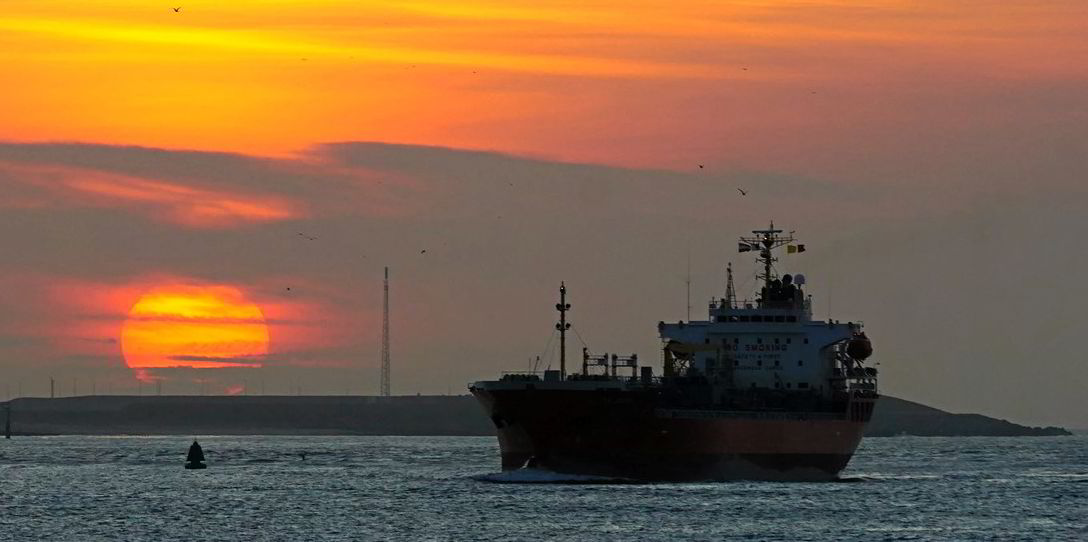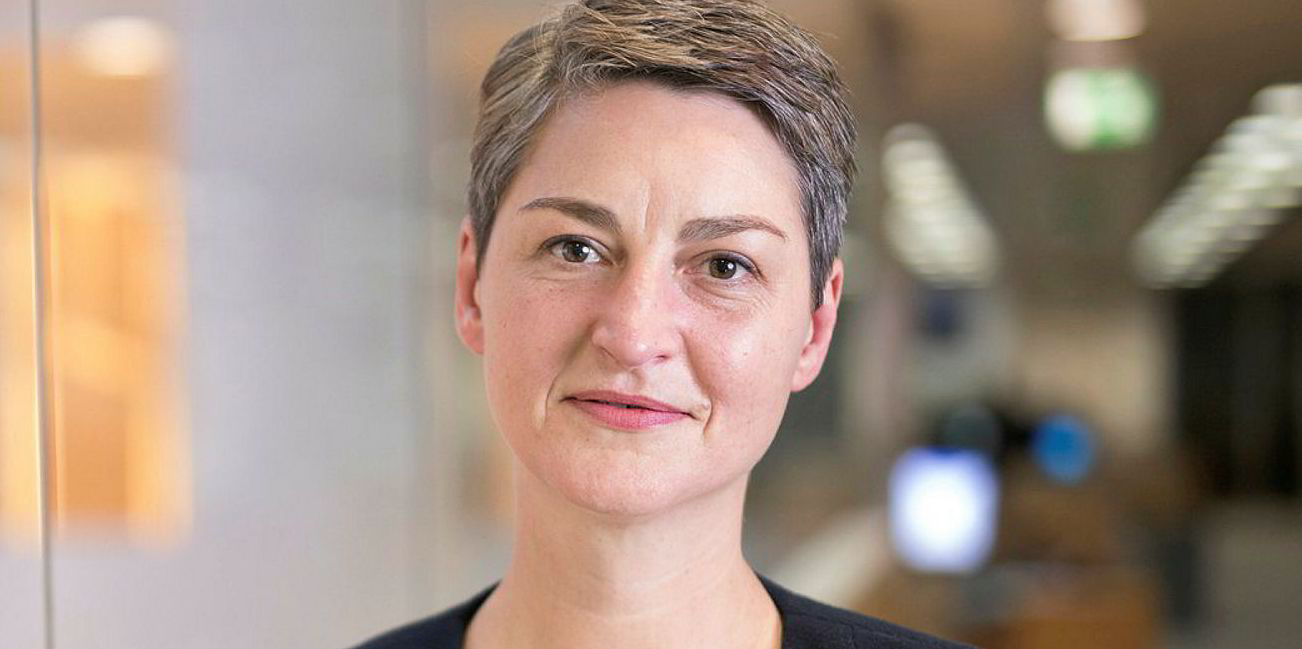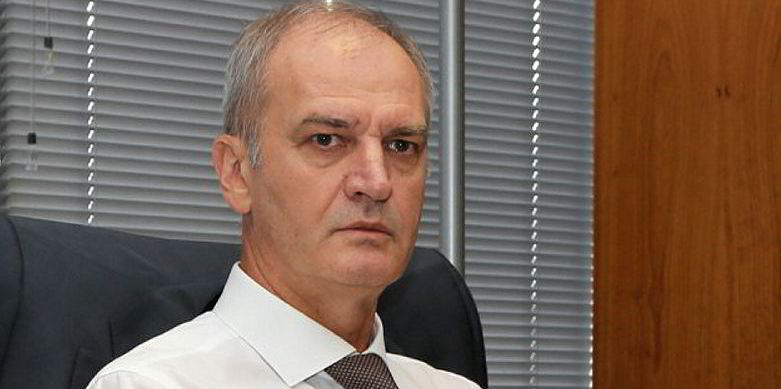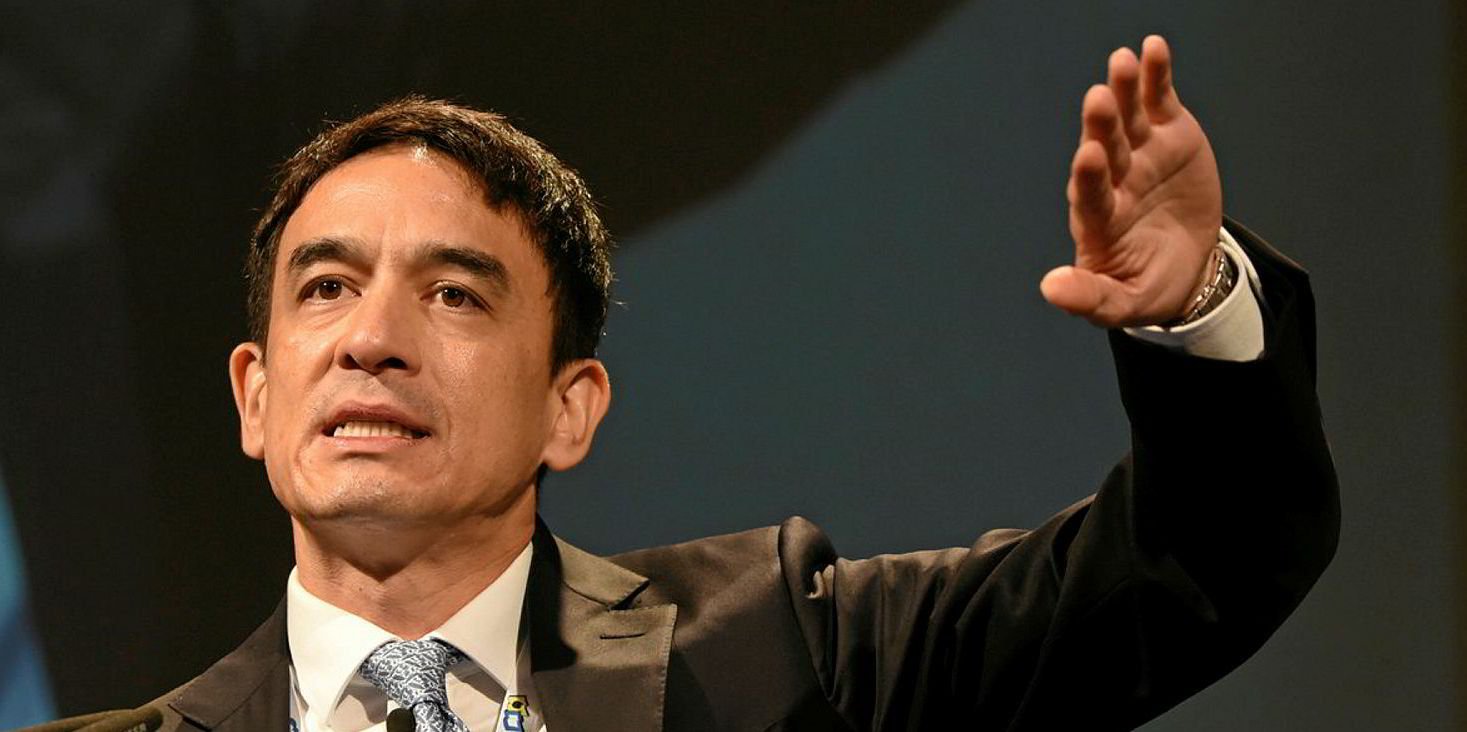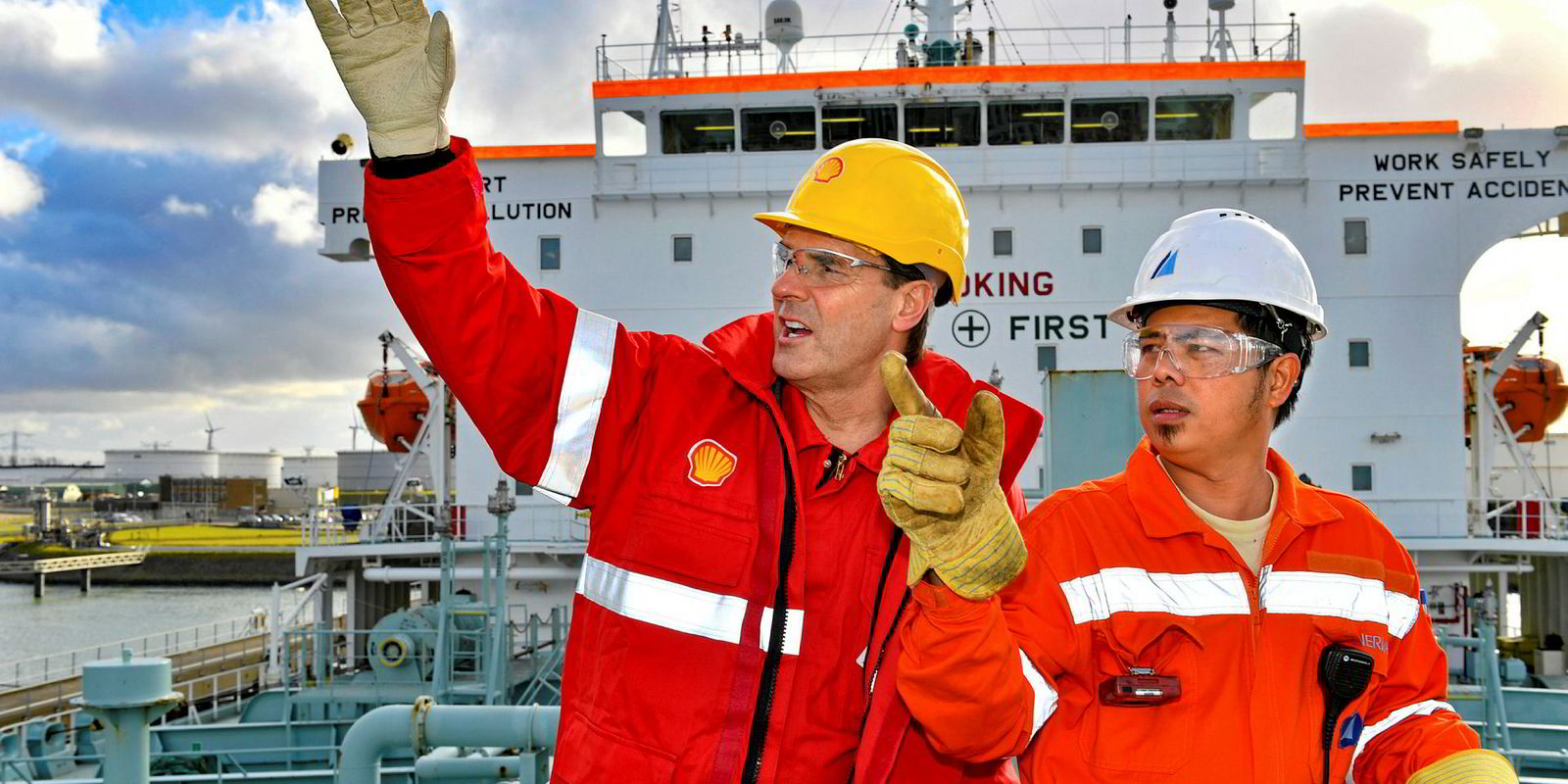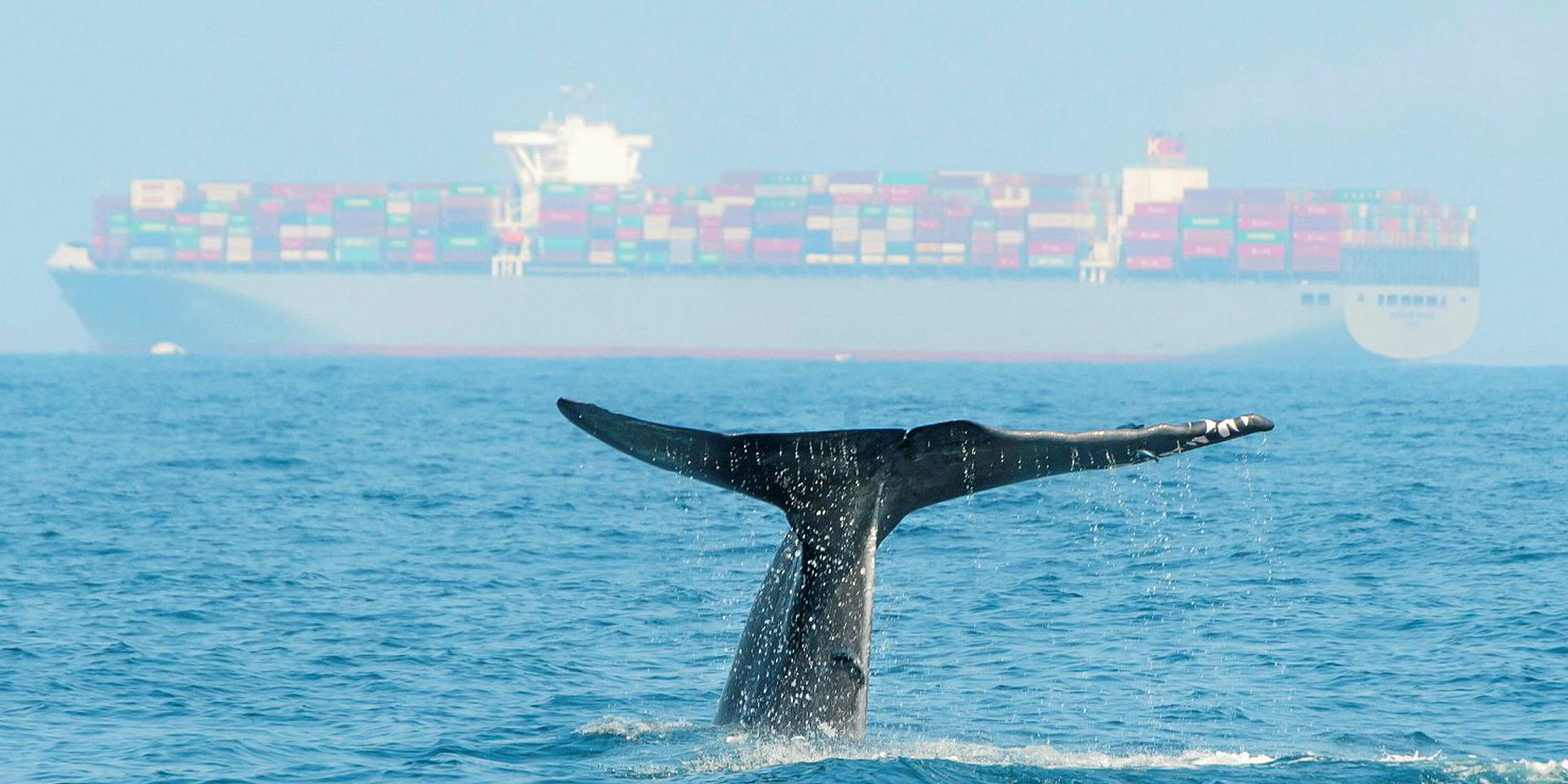Is the sun setting on the oil tanker industry, hastened into history by Covid-19?
The largest decline in seaborne oil trade since the 1980s came in 2020 as the pandemic took its toll on energy demand. Clarksons Research estimates last year’s volumes at 2.77bn tonnes, down from 3.04bn tonnes in 2019.
Tanker owners initially enjoyed record earnings in the first few months of the pandemic. But freight rates later collapsed and have stayed in the doldrums since the third quarter of 2020 due to lacklustre shipping demand.
While such a volatile rate environment is unprecedented to many in the industry, tanker experts generally believe the pandemic’s impact will gradually peter out amid mass vaccination.
“The decline in trade was caused by lockdown in the main economies and a big reduction in travel,” Clarksons Research non-executive president Martin Stopford tells TW+. “Given the success of vaccination, repeated major lockdowns seem unlikely in the advanced economies, so we can treat this as a one-off event.”
Anthony Gurnee, president and chief executive of Ardmore Shipping, says seaborne oil shipping demand is returning to a recovery path.
“We do expect to see oil demand and tanker trade recover fully and then continue on a slow growth trajectory for the medium term, meaning three to five years at a minimum,” says Gurnee, whose company operates more than 20 product tankers.
But observers believe that some lifestyle changes during the pandemic, such as reduced business travel and working from home, will stay for the long run and dampen oil demand prospects.
Moreover, national governments and the public are putting more focus on decarbonisation to combat climate change. Oil, as the primary fossil fuel, is supposed to play a much more limited role in the low-carbon future.

“We ... clearly believe the pandemic has seen the trend toward decarbonisation accelerate,” says crude tanker giant Euronav’s chief executive, Hugo De Stoop. He says this can be seen in the pressure from regulators, banks and investors, as well as “a general understanding that issues need to have solutions now”.
In its latest annual Energy Transition Outlook, DNV predicts global oil demand to stay relatively flat until 2025, before a steady decline to just above half of the current level by mid-century.
The classification society believes oil use will decrease by 2.8% per year between 2030 and 2050, driven by a growing fleet of electric vehicles and the rising use of low- and zero-emission fuels by aircraft and vessels.
Dim prospects have prompted many financiers to view oil-related assets as “stranded”, prone to premature devaluations due to environment-related risks. And oil tankers are not immune.
“We believe that shipping will remain attractive, but only with alternative pathway fuels which result in lower-emissions shipping,” says Anita Gajadhar, managing director of marketing & logistics at Proman. “Tanker owners need to start the transitions toward greener fuels.”
Proman is the world’s second-biggest methanol producer, and the division Gajadhar is in charge of is building a fleet of methanol-fuelled MR tankers.
Levelling the playing field

“If owners of ‘green vessels’ are able to source cheaper financing, then this could assist them in competing against conventional vessels in future years and in levelling the playing field,” she says.
Others hold similar views. Product tanker operator Hafnia says the companies that demonstrate efforts to reduce their environmental footprint should have no trouble attracting investors and financiers.
Gurnee says: “We think financiers will be increasingly deliberate in supporting shipping companies that are taking a progressive approach to reducing their carbon emissions, rather than focusing on the cargo they carry, which is a function of global demand.
“[Banks] are not so keen on strategies around the perpetuation of older, inefficient vessels, regardless of type. This is the sort of financing which will become more and more difficult to find.”
In DNV’s forecast, global seaborne crude trade volume will begin to decline permanently later this decade. Shipping distances could also shorten: India is expected to replace China as the main demand driver in the coming decades, while Middle Eastern producers will become even more dominant.
With 25% of VLCCs aged over 15 years, De Stoop suggests there could be profound changes in the competitive landscape for crude tanker owners.
“The long tail of largely private and single-ship ownership of this older portion of the fleet will likely exit the sector,” he says. “If the decarbonisation efforts go faster ... more ships will need to be scrapped and less be built. We also believe that a sector in decline [or] no longer growing will be consolidated.”
But De Stoop foresees an essential role for crude tankers in the wider energy transition to a low-emission future.
“Tankers delivering crude safely to the emerging markets to facilitate their development without the need for new exploration should be an important plank in this process,” he says. “Tankers stand at the forefront of multiple solutions to the wider shipping, energy and transport transition.
“To ignore the sector will make the transitions more operationally challenging, costly and much longer in duration …What is really important here for investors and stakeholders of shipping is to understand the role we can play.”
He argues that the risk to decarbonisation efforts lies in abandoning oil and oil services firms too early: “That will drive the cost of the transition exponentially up and will slow it down. We all need to strike the right balance and reward the ones that are willing and able to make it happen.”
Seaborne trade of refined products is also expected to start down a slippery slope as the world moves away from oil, but the impact could be mitigated by emerging requirements of shipping low-carbon fuels.
Some analysts expect more demand for transporting hydrogen, ammonia and methanol amid decarbonisation efforts post-2030, despite uncertainty over the development of future supply chains.
Mikael Skov, chief executive of Hafnia, believes conventional product tanker owners could actually enjoy stronger earnings in the first phase of transition.
“With reduced newbuilds entering the market due to the uncertain energy mix and increased scrapping due to stricter emissions requirements, the supply and demand ratio will be favourable to tanker owners for the foreseeable future,” he says.

“The transport of relatively more sensitive low-carbon fuels will probably require higher specification and purpose-built vessels, especially if compared to the average tanker.”
Gurnee agrees there will be more “renewable fuel” cargoes for product tanker owners, while demand prospects for oil products are dimmer.
“Vessel designs of the future — of all types, not just tankers — will not only need to run on those fuels, but they will also need to be super-efficient to maximise voyage economics involving fuels which will be far more expensive than what we use today,” he adds.
Propulsion systems for such ships also need to be environmentally friendly, Gajadhar reckons. “Producers and customers of such ‘greener’ alternatives will not want to use old, fossil-powered ships to move their product around the globe,” she says.
“This drive could exponentiate the demand for not only alternative fuel propulsion but also ship tonnage, as in some instances twice as much of the alternative fuel is required to meet the energy value of conventional fuel.
“Simple tank coatings might also become less attractive, with more sophisticated coatings required to allow tankers to maintain cargo in-take flexibility.”
With the phasing out of oil expected to take decades, as well as the emergence of new business opportunities, tanker owners can still plan for the long term. But Stopford warns this won’t be an easy task.
The renowned economist has envisaged a decade of “agonising decisions” for tanker owners, with “no clear options and many risks”.
“The pandemic coincides with the biggest other fundamental change in tanker economics since the 1970s,” Stopford says.
“Fossil fuels, and especially heavy fuel oil, must be phased out, and clean fuels must be phased in ... This takes decades to implement, but technology is becoming available, so tanker companies cannot avoid taking decisions.
“The challenge is to manage a shrinking business with new and rather expensive technology.”
